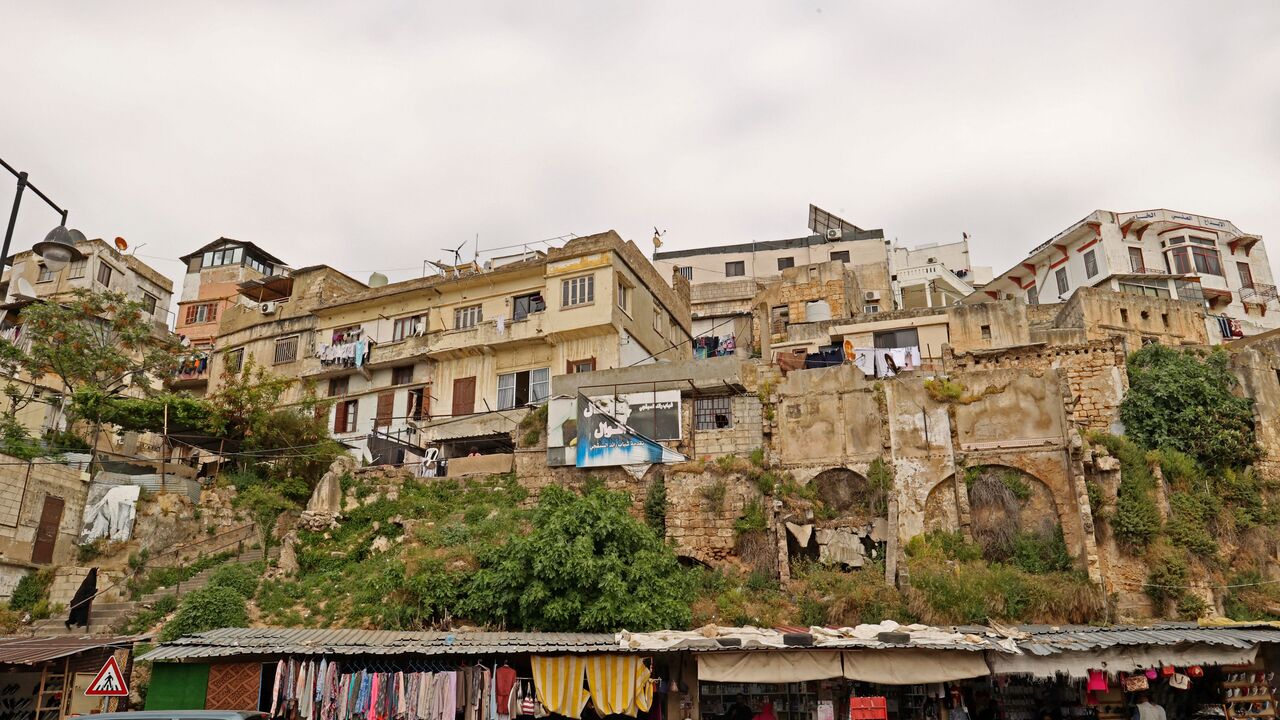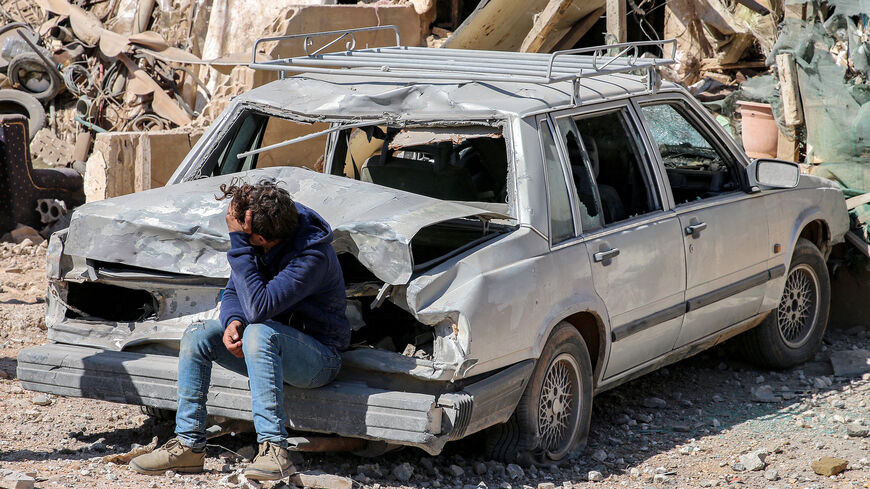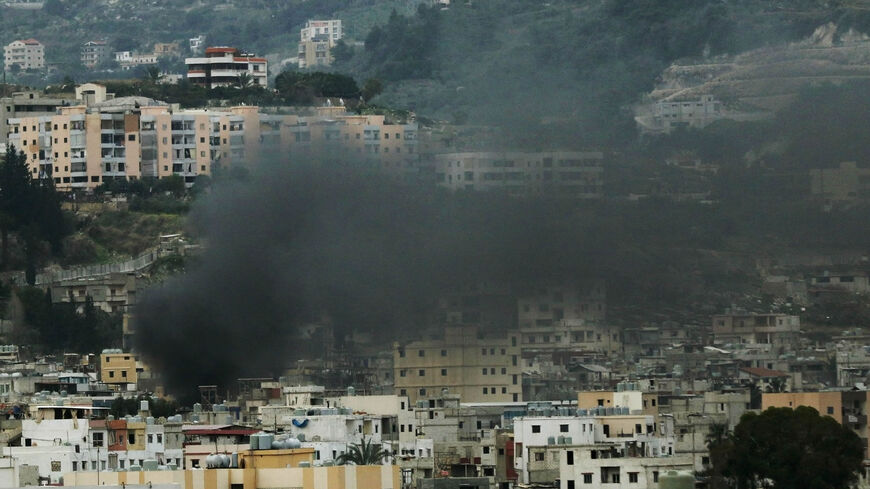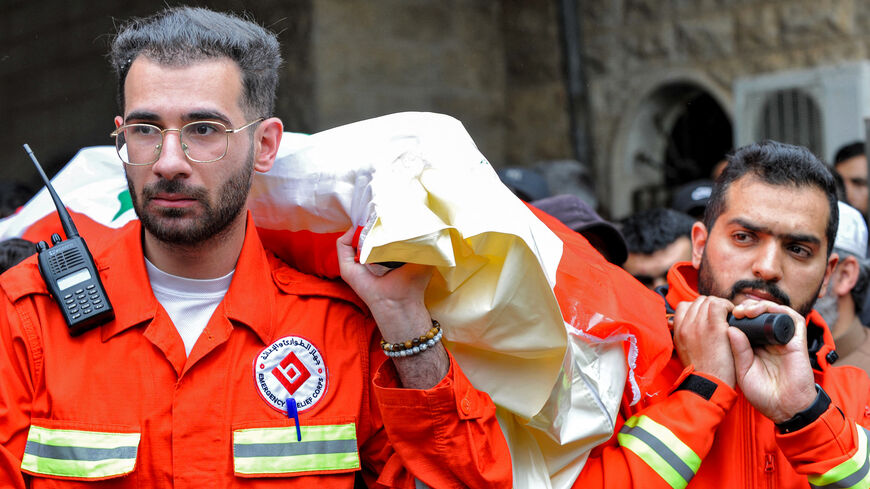Nearly 1,000 buildings in Tripoli, Lebanon are at risk of collapse: Amnesty
Amnesty International has denounced the local Tripoli government’s lack of action to protect residents who have been living in unsafe buildings since last year’s earthquake.

More than a year after the deadly earthquake that ravaged Turkey and Syria and whose impact was felt across Lebanon, the Lebanese government continues to ignore the risks of building collapses in the country’s second-largest city of Tripoli in the north, putting people’s lives at risk, a report by Amnesty International published on Tuesday found.
In the early morning hours of Feb. 6, 2023, a 7.8 magnitude quake struck southern Turkey and northern Syria, killing more than 40,000 people and causing significant material damages. The shockwaves reached Lebanon but no casualties were reported. Tripoli, however, was particularly affected as several buildings were severely damaged.
The earthquake has highlighted what the residents of Tripoli have been complaining of for years: illegal and poor construction amid a lack of maintenance and a complete disregard for safety requirements and regulations.
In a research briefing published on Tuesday, Amnesty International cited figures from the municipality of Tripoli as showing that 800 to 1,000 buildings in the city were at risk of collapse six months after the earthquake, compared to 236 in 2022.
Amnesty International accused the Lebanese government of “indifference” toward thousands of people living in unsafe buildings in Tripoli.
“The Lebanese government has drastically failed in its responsibility to establish a clear plan to repair damaged buildings and ensure that residents are offered support, including compensation and alternative housing where applicable,” Amnesty International’s Lebanon researcher Sahar Mandour said in the report.
“The right to adequate housing is a human right. It is shameful that residents in the city with the highest poverty rate in Lebanon have been left to fend for themselves and in some cases were handed eviction notices,” she added. According to UN data, poverty rates in Tripoli reached 58% in 2021.
A few days after the earthquake, the Lebanese government asked the municipalities to provide a list of buildings that had been damaged or were at risk of collapse. The government also said it would allocate for residents living in damaged buildings an allowance worth 30 million Lebanese liras (around $320) to cover three months worth of rent and repair the damages.
But according to residents interviewed by Amnesty, only one person has received the money and the rest are still living in their houses despite the risk.
Building collapses becoming regular occurrence
Amnesty International’s briefing comes as building collapses are rising across Lebanon.
On Monday, a building in the Choueifat area south of Beirut collapsed, leaving at least four people dead, including two women and a child, and several others injured.
The three-story apartment building housed around 30 Syrians, according to the official news agency.
Local officials cited by the Associated Press said the municipality had ordered the evacuation of the building two years ago after deeming it unsafe. However, the owner of the building ignored the order and rented apartments to Syrians.
لحظة سحب أحد الناجين من تحت ركام المبنى في الشويفات
— مصدر مسؤول (@fouadkhreiss) February 19, 2024
pic.twitter.com/XA8QkWTXV0
Last Sunday, another five-story building in Choueifat collapsed. No casualties were reported as the residents evacuated in time.
لولا العناية الالهية لكان عدد الضحايا بالعشرات.
— D® Phil (@philabouzeid) February 11, 2024
ملف الابنية القديمة في #لبنان هو ملف بغاية الخطورة.
لا حاجة لاسرائيل لأن تقصفنا. نحن نقصف أنفسنا بنفسنا بسبب الاهمال وقلة الضمير وانعدام المسؤولية.
فيديو جديد للحظة انهيار المبنى في صحراء الشويفات pic.twitter.com/P8X2MYa2yW
In October 2023, eight women were killed when a building partially collapsed in the town of Mansourieh, 10 kilometers (around six miles) east of Beirut.
The local Lebanese Association of Properties estimates that between 16,000 to 18,000 buildings across Lebanon are currently at risk of collapse.
In a press statement released earlier this week, the association demanded that dilapidated buildings be reinforced and residents of buildings at risk of collapse be evacuated.
Lebanon has been in the throes of a devastating economic and financial crisis since October 2019. For nearly four years, the Lebanese people have been struggling to make ends meet amid skyrocketing prices of goods, frequent power shortages and inadequate supplies of medicine and fuel. Meanwhile, the local currency has lost more than 90% of its value, sending more than half of the population below the poverty line.






